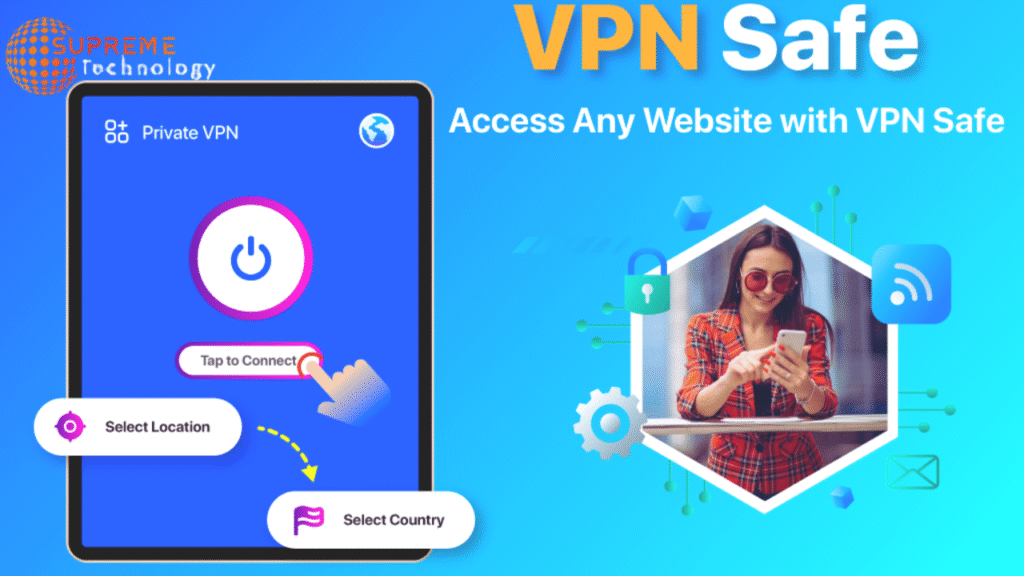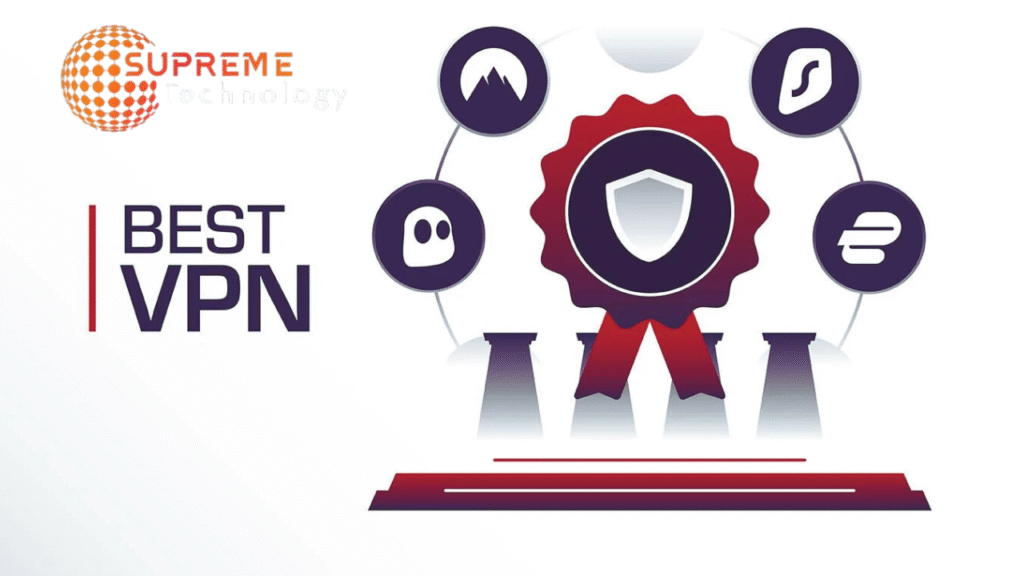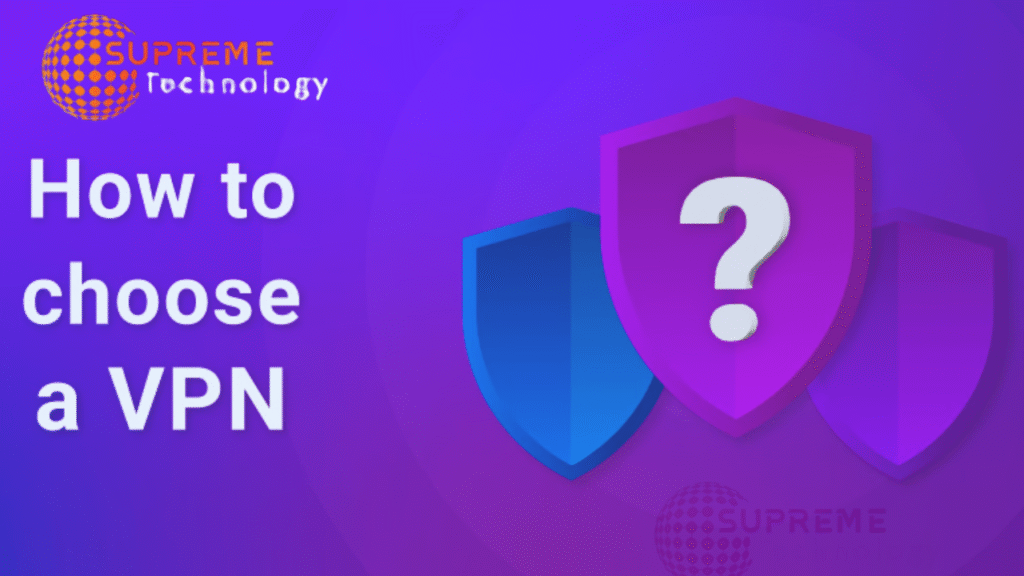In an era where VPN Is Safe in 2025 online privacy is increasingly under threat, choosing a safe Virtual Private Network (VPN) is critical for protecting your data, securing your browsing, and bypassing restrictions. With countless VPN providers on the market, identifying a trustworthy option can be daunting. This article explores the safest VPNs for 2025, highlighting their key features, security protocols, and why they stand out.

What Makes a VPN Safe?
A VPN Is Safe in 2025 ensures your online activities remain private and secure. Key factors to consider include:
- Strong Encryption: AES-256 is the gold standard, virtually unbreakable by modern computing standards.
- No-Logs Policy: A verified policy ensuring no user data is stored, ideally audited by third parties.
- Kill Switch: Automatically cuts your internet connection if the VPN drops, preventing data leaks.
- Secure Protocols: Modern protocols like WireGuard or OpenVPN offer a balance of speed and security.
- Jurisdiction: Providers based outside surveillance alliances (e.g., Five/Nine/Fourteen Eyes) are preferable.
- Independent Audits: Regular third-party audits validate privacy and security claims.
Top Safe VPNs for 2025

Based on recent analyses and user feedback, here are five of the safest VPNs for 2025:
1. NordVPN
- Why It’s Safe: NordVPN uses AES-256 encryption and its proprietary NordLynx protocol (based on WireGuard) for blazing-fast, secure connections. Its no-logs policy has been audited multiple times by Deloitte, ensuring transparency. VPN Is Safe in 2025 Features like a kill switch, DNS leak protection, and obfuscated servers make it ideal for bypassing censorship.
- Standout Features: Over 6,000 servers in 60+ countries, double VPN for extra encryption, and excellent streaming support.
- Best For: Users seeking a balance of speed, security, and streaming capabilities.
- Drawbacks: Higher pricing compared to some competitors.
2. Proton VPN
- Why It’s Safe: Based in privacy-friendly Switzerland, Proton VPN offers AES-256 encryption, a strict no-logs policy audited by Securitum, and open-source apps for transparency. Its Secure Core servers route traffic through multiple locations for added protection.
- Standout Features: Free plan with unlimited bandwidth, strong streaming support, and Tor over VPN for anonymity.
- Best For: Privacy enthusiasts and users in censored regions.
- Drawbacks: Fewer servers than NordVPN (around 4,000).
3. Surfshark
- Why It’s Safe: Surfshark employs AES-256 encryption and a no-logs policy audited by Deloitte. Its Camouflage Mode hides VPN usage, making it effective in restrictive environments. A kill switch and MultiHop feature enhance security.
- Standout Features: Unlimited simultaneous connections, budget-friendly pricing, and CleanWeb to block ads and trackers.
- Best For: Cost-conscious users needing multiple device connections.
- Drawbacks: Smaller server network (3,200+ servers).
4. ExpressVPN
- Why It’s Safe: ExpressVPN uses AES-256 encryption and TrustedServer technology (RAM-only servers) to ensure no data is stored. Its no-logs policy has been audited by PwC and KPMG. It’s based in the British Virgin Islands, outside major surveillance alliances.
- Standout Features: User-friendly apps, fast speeds, and excellent streaming performance on platforms like Netflix.
- Best For: Beginners and streaming enthusiasts.
- Drawbacks: Expensive; some concerns about parent company Kape Technologies’ past.
5. Mullvad
- Why It’s Safe: Mullvad prioritizes anonymity with AES-256 encryption, a no-logs policy, and anonymous account creation (no email or personal info required). It’s based in Sweden and supports WireGuard and OpenVPN.
- Standout Features: Affordable flat pricing (€5/month), anonymous payments (e.g., cash, crypto), and bridge servers for bypassing firewalls.
- Best For: Users prioritizing maximum anonymity.
- Drawbacks: Limited streaming support and less user-friendly interface.
Warnings and Considerations
- Avoid Untrustworthy Free VPNs: Many free VPN Is Safe in 2025 monetize by logging data or serving ads, compromising your privacy. Stick to reputable free tiers like Proton VPN’s.
- Check Jurisdiction: VPNs based in countries like the US or UK may be subject to surveillance laws. Opt for providers in privacy-friendly regions like Switzerland or the British Virgin Islands.
- Kape Technologies Concerns: VPNs like ExpressVPN, CyberGhost, and Private Internet Access are owned by Kape, which has a controversial past tied to adware. Recent audits mitigate concerns, but research thoroughly.
- Legal Restrictions: In countries like China or Russia, VPN usage may be restricted. Choose VPNs with obfuscation features (e.g., NordVPN, Surfshark) to bypass firewalls.
How to Choose the Right VPN Is Safe in 2025
When selecting a VPN, consider your primary needs:

- Privacy: Prioritize Mullvad or Proton VPN for their transparency and no-logs policies.
- Streaming: NordVPN and ExpressVPN excel at unblocking Netflix, BBC iPlayer, and more.
- Budget: Surfshark and Mullvad offer excellent value.
- Ease of Use: ExpressVPN and NordVPN have intuitive interfaces for beginners.
Conclusion VPN Is Safe in 2025
A safe VPN is your shield in the digital world, protecting your data and privacy. NordVPN, Proton VPN, Surfshark, ExpressVPN, and Mullvad stand out in 2025 for their robust security, audited no-logs policies, and reliable performance. Assess your needs—whether it’s streaming, anonymity, or budget—and choose a provider that aligns with them. By prioritizing encryption, audits, and privacy-friendly jurisdictions, you can browse with confidence.
